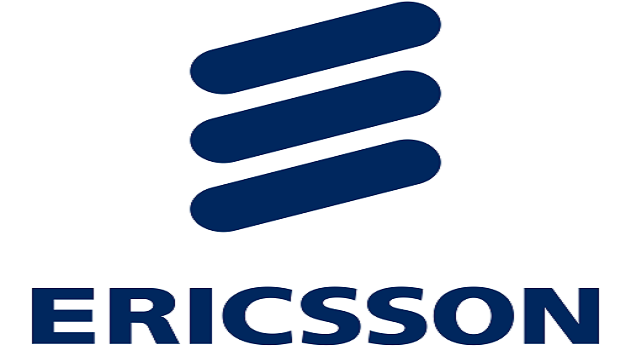Telecom
Ericsson Deepens African Agenda with Schools Project

As Ericsson expands its #AfricaInMotion strategy, which aims to accelerate digital inclusion and adoption across the continent, the company is urging governments to play a key role in developing strategies that support internet access and digital learning.

This is according to Ayub Osman, head of sustainability and corporate responsibility for Ericsson Middle East and Africa.
In an interview with ITWeb Africa, Osman stated governments must form productive partnerships with the private sector, particularly communication service providers and technology companies, to implement these strategies by building the necessary digital infrastructure and providing reliable school connectivity.
The Ericsson senior executive discussed the progress made by the company and its global partners in supporting the International Telecommunication Union’s GIGA initiative in Kenya.
GIGA launched in 2019 as an initiative to connect all schools all over the world and has three pillars: map, model and contract.
. Map the location of schools and monitor school connectivity status in real-time.
. Model the infrastructure, policies, regulations and investments needed to deliver school connectivity.
. Help governments to contract connectivity for schools.
The GIGA project has already spread across Africa, being launched simultaneously in Rwanda, Sierra Leone, South Africa, Kenya, Botswana, Benin, Zimbabwe, Ghana, Namibia, Nigeria and Niger.
Now, in Kenya, Ericsson has announced it is cooperating with UNICEF and GIGA to promote Kenya’s National Broadband Strategy, which aims to connect all schools by 2030.
Osman shared insights about the initiative and its progress in Kenya, noting: “We recognise that mapping the connectivity landscape is a critical first step towards connecting every school to the internet and providing each child with access to learning opportunities.
“Through our expertise in ICT, we are helping provide an understanding of where connectivity is needed the most. We have also developed Daily Check, an app that supports the GIGA initiative through the collection, validation, analysis, monitoring and visualisation of real-time school connectivity data.
“With the engagement of international partners, this initiative has achieved noteworthy advancements. By the end of 2023, a total of 546 public schools in Kenya were connected to the internet for the first time, positively impacting over 340 000 students and educators.”
Further, he said: “For students, the internet can offer access to learning material and resources at their fingertips. It serves as a repository of knowledge that is not restricted by geography and is available to anyone with connectivity.
“Meanwhile, teachers can use the internet to access assessment tools that can help evaluate students’ performance and identify their learning needs. The internet also offers a wealth of digital resources that can assist teachers in preparing lesson plans and incorporating innovative methods in knowledge delivery.
“Finally, the internet enables policy-makers to obtain real-time information on the effectiveness of their policies.”
Moving on to the continent’s need for digital infrastructure to assist connectivity initiatives, Osman stated: “Building infrastructure to enable access to the internet and digital learning for all students is the starting point. But this access also needs to be affordable and reliable.
“Governments play a key role in developing strategies that place access to the internet and digital learning at the forefront of education policies and overcome the barriers to integration, such as Kenya’s National Broadband Strategy.
“They must also forge productive partnerships with the private sector, especially communication service providers and technology companies, to implement these strategies by building the required infrastructure and providing reliable school connectivity.”
Telecom
Keystone Bank Seeks to Join Suit in Tussle over 9Mobile Shares Ownership

Keystone Bank has brought a motion seeking to be joined as a party to the suit over the ownership and control of Emerging Markets Telecommunication Service (EMTS), which is the holder and operator of 9Mobile Telecommunication licence.

The messy turnaround came as a Federal High Court sitting in Abuja resumed hearing in the suit.
At the hearing, Keystone Bank, brought a motion seeking to be joined as a party to the suite, a proposed statement of defence and counter-claim which discloses triable issues and also demonstrates applicant’s interest in the subject of this suit.
The bank in its counter-claim is seeking among other reliefs that the resolution of the 5th defendant passed on December 7, 2023, increasing the share capital of the 6th defendant to counter-claim from N90, 000,000 to N2, 000,000,000 and reducing the 3rd defendant’s percentage stake/interest/shareholding in the 6th defendant to counter-claim to approximately 4.5 percent is null and void.
Abubakar Funtua, the plaintiff, had dragged General Theophilus Danjuma (retd) and his company LH Telecommunication Limited, as well as the other defendants to court over the ownership and control of EMTS trading under the name of 9Mobile.
The other Defendants are Seltrix Limited (sued as the 1st defendant), the Corporate Affairs Commission, CAC, Nigerian Communications Commission, NCC, Hayatu Hassan Hadeija, Teleology Nigerian Limited and one Mohammed Edewor, a Director in Teleology Nigeria Limited.
At the resumed hearing in the case, parties were confronted with a motion by Keystone Bank seeking to be joined as a party to the suit with a statement of defence, counter-claim and allegation of fraud against some parties in the suit No. /ABJ/CS/1971/2024.
The motion states among other things that: “The applicant, Keystone Bank, also intends to present a counter-claim and has prepared a proposed statement of defence and counter-claim which discloses triable and fecund issues and also demonstrates applicant’s interest in the subject of this suit.
“The case of the applicant, is that the resolution passed by the 3rd defendant on May 9, 2023, approving the change of control/ownership of the 5th defendant from the 3rd defendant to the 8th defendant, in violation of the facilities agreements (Deed of Share charge) between the applicant and 3rd defendant, and the orders of the court made on February 20, 2023, in suit No. FHC/L/CS/297/2023 is illegal, null and void.
“The case of the applicant, as set out in the proposed statement of defence and counter-claim, is that the resolution passed by the 3rd defendant on May 9, 2023, approving the change of control/ownership of the 5th defendant from the 3rd defendant to the 8th defendant, in violation of the facilities agreements (Deed of Share charge) between the applicant and 3rd defendant, and the orders of the court made on February 20, 2023, in suit No. FHC/L/CS/297/2023 is illegal, null and void.
“The applicant also asserts in the proposed statement of defence and counter-claim that the resolution of the 5th defendant passed on December 7, 2023, increasing the share capital of the 6th defendant to counterclaim from N90,000,000 to N2,000,000,000 and reducing the 3rd defendant’s percentage stake/interest/shareholding in the 6th defendant to counterclaim to approximately 4.5 perceent is null and void.
“The applicant intends to seek the following reliefs, endorsed on the proposed statement of defence and counter-claim, at the hearing of the case: “A declaration that the 1st defendant to counterclaim is not a shareholder, either directly or indirectly, of the 6th defendant to counterclaim.
Telecom
MTN Nigeria’s Go MAD Campaign Inspires Innovation and Resilience in Aba

MTN Nigeria’s Go Make A Difference (Go MAD) campaign brought its message of innovation and empowerment to Aba, the renowned hub of enterprise, on Sunday, March 23, 2025.

L-R: Joseph Ogbuka, Manager, Go-To-Market, MTN Nigeria; Micheal Chinedum Ogbonna, CEO, Mua Couture; Dr. Precious Uche, CEO, Tonatel Beauty & Spa and MacDaniels Enwemuche, Regional Manager, Sales & Trade Development, MTN Nigeria at the Go MAD regional activation at Sugarland, Luxury City Hotels, Aba on Sunday March 23, 2025.
The event, held at Sugarland, Luxury City Hotel, celebrated local creativity and resilience while encouraging Nigerians to take bold steps toward transforming their communities.
Onyinye Ikenna-Emeka, Chief Marketing Officer of MTN Nigeria had earlier the inspiration behind the Go M.A.D initiative. “The Go M.A.D. campaign is rooted in the belief that MTN data gives you the power to take on the world, to achieve the extraordinary, and to make a meaningful difference, in your community, your family, and your workplace.”
The campaign has already made stops in cities like Abuja, Enugu, Calabar, Ibadan, and Benin, showcasing changemakers who embody the spirit of progress. In his opening remarks, MacDaniels Enwemuche, Regional Manager, Sales & Trade Development at MTN Nigeria, emphasised the importance of resilience during challenging times. He stated: “MTN is here to remind us that every great achievement starts small. We’re providing a platform for Nigerians to showcase their skills and products, not just locally but globally, removing limitations and amplifying their impact.”
Describing Aba as Nigeria’s “Silicon Valley”, Enwemuche explained the need to activate this campaign in Aba, due to the city’s industrious spirit and alignment with the Go MAD philosophy: “Aba is already making a difference. Every person — doctor, teacher, shoemaker — has a role to play in our ecosystem. Do it well.”
The event featured inspiring stories from local changemakers. Like chessmaster Tunde Onakoya, the campaign’s ambassador, these stories reflected how small steps can lead to global impact. Onakoya rose from humble beginnings to become a Guinness World Record holder for the longest chess marathon. His journey exemplifies the transformative power of determination and digital connectivity.
Local talents also took centre stage in a vibrant showcase. A body painter, tailor, and mechanical engineer demonstrated their crafts live, while fashion designer Prinna Nnanna unveiled an athleisure line sewn overnight and modelled on-site.
The Icons of Impact session highlighted changemakers using MTN data to drive social change. Dr. Precious Uche, CEO of Tonatel Beauty and Spa, shared her mission to redefine beauty standards:
“My business fights bleaching and promotes ‘black is beautiful.’ MTN data has helped me spread this message across Owerri and Aba.”
Fashion entrepreneur Michael Chinedu Ogbonna, CEO of Mua Couture, discussed how digital tools have expanded his reach: “The internet has made the world a global village. I now create clothes for clients in Malaysia, the US, and Canada — all thanks to data.”
Through storytelling, cultural showcases, and real-life examples, the Go MAD Aba activation reminded attendees that even small acts of courage can spark significant change. The campaign continues to celebrate resilience and innovation across Nigeria while empowering communities with digital tools.
With upcoming activations planned for cities like Jos, Lagos, and Kano, MTN remains committed to inspiring Nigerians to make a difference, one bold step at a time.
Telecom
Open Access Fabrics Set to Drive Connectivity to Achieve a Digital Economy

Ayotunde Coker, chief executive officer of OpenAccess Data Centre has described Open Access fabric, the company’s Africa-led interconnection platform as key driver of a digital economy, offering a range of virtual connectivity services from Open Access Data Centres (OADC) facilities.

Empowered by West Indian Ocean Cable Company (WIOCC), extensive digital backbone, OAfabric offers enterprises and service providers access to diverse digital ecosystems, supporting user-to-service, user-to-user and site-to-site connectivity.
Coker stated this during a tour of Open Access Data Centre facility in Lagos by some journalists recently.
According to him, “designed as a future-ready foundation, OAfabric unites cloud and local connectivity with OADC’s market-leading colocation solutions, establishing an innovative, scalable African infrastructure platform that addresses both local and global digital transformation demands.
“OA fabric offers a reliable, adaptable interconnection platform to support Africa’s growing digital needs and hybrid infrastructures for local and global providers
“Enabling secure, direct cloud connections, OA fabric supports data sovereignty and fosters local provider growth, OA fabric provides IX peering, virtual interconnection, and tailored IP services for Africa’s digital landscape.
“It’s not about a particular service provider, it’s about everybody. Once you have a network and you are able to route traffic, even if you are not live yet, and you are hoping to come in the future, we are waiting for you to come on board. So, that platform converges everybody.
“With Open Access fabric, everyone is expected to interconnect. You are collaborating with the government. You are collaborating with the banks. We are collaborating with all these guys to interconnect everyone, Microsoft, Google, all the cloud companies connect into it, because we already have the connectivity business”.
He noted that, “Through OA fabric, all the other connectivity providers have access to any content on OA fabric, so SMB, SMEs, MSMEs, who probably doesn’t have a registered business, but on social media, selling clothes and things like that, can have cost effective access to resources on the internet.
Speaking on Metro fiber project which OADC is partnering with WBT, Coker explained that they have covered over 5 million homes in Lagos. “The job of the Internet Service Provider or MNO in the project is to maintain relationship with the residents of that area, make sure that the infrastructure is secured”.

 Broadcasting3 days ago
Broadcasting3 days agoNGO Blasts MultiChoice for Tariff Hike in Nigeria, Slash in South Africa

 News3 days ago
News3 days agoNIPOST Explains Clamping Down on Illegal Logistics Services in Enugu

 E-Business3 days ago
E-Business3 days agoOtti, Abia State Gov Promises Internet Access for all Abia Communities in 9 Months

 E-Financial3 days ago
E-Financial3 days agoCITN Seeks AI to Curb Revenue Leakage in Nigeria’s Tax System

 News3 days ago
News3 days agoNESREA Urges Nigerians to Dispose Batteries Properly to Avoid Hazards

 Telecom3 days ago
Telecom3 days agoTelcos Mull Introduction of Different Tariff Plans for Different States

 News3 days ago
News3 days agoTony Elumelu Foundation Grants $15m to 3,000 African Entrepreneurs

 News2 days ago
News2 days agoPolice Arrest 4 Bank Staff over Alleged ₦270m Fraud, Money Laundering














